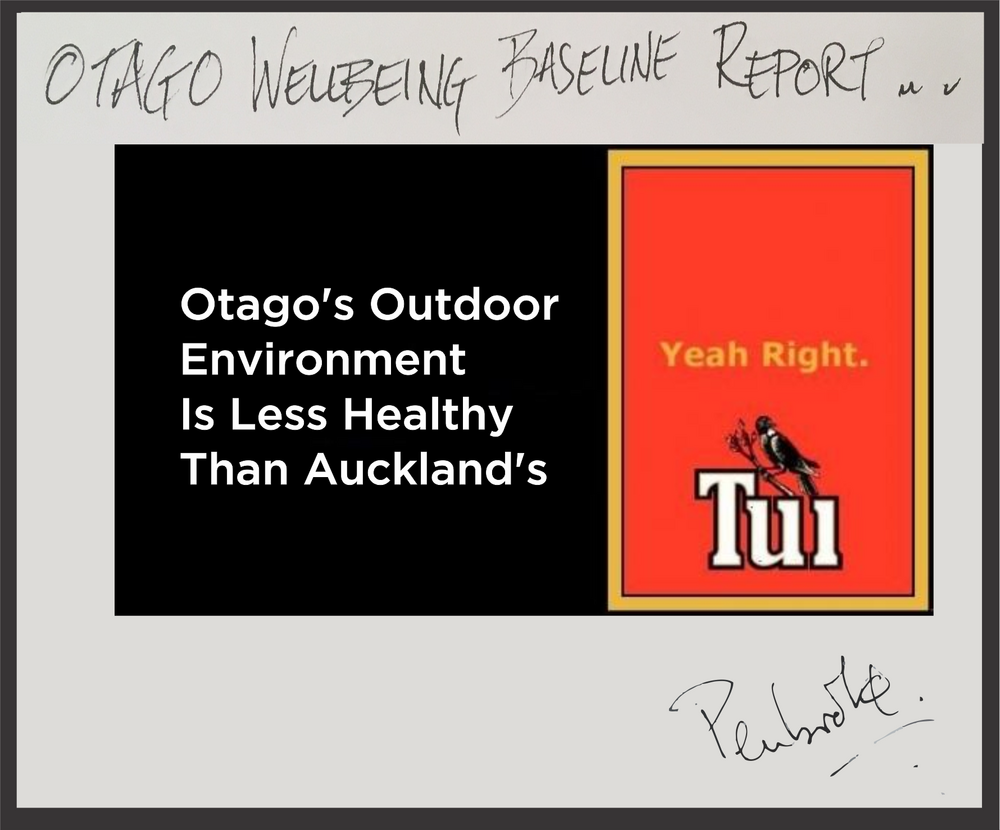Report shows wellbeing ‘baseline’ for Otago
Maddy Harker
25 July 2023, 5:04 PM
 A wellbeing report has been commissioned by Otago Regional Council to help it monitor and better understand wellbeing in the region.
A wellbeing report has been commissioned by Otago Regional Council to help it monitor and better understand wellbeing in the region.A newly released wellbeing report shows that Queenstown Lakes residents have the highest life expectancy in the country, the second-highest employment rate and the fourth highest number of school leavers with NCEA level two or above.
However, the district ranks poorly in other areas, such as rent affordability, the proportion of residents who speak Te Reo Māori, and voter turnout in general elections.
In a surprise to many readers, the Otago region scored lower than Auckland for the ‘healthy natural environment’ dimension.

The Otago Wellbeing Framework Report (OWFR), commissioned by Otago Regional Council (ORC), is part of its new Wellbeing Framework for Otago, which it has developed to monitor and better understand wellbeing in the region.
As a ‘baseline report’, the OWFR centres around seven dimensions of wellbeing and includes 33 indicators which measure outcomes in the region.
“The wellbeing framework will help councils prioritise actions that have the greatest impact on the wellbeing of both current and future generations,” the report, completed by data analytics company DOT Loves Data, said.
“This initiative reflects a growing expectation, from communities and central government, for councils to actively promote community wellbeing and consider a wellbeing perspective within everything they do.”
While the report provides some insights into how Queenstown Lakes is tracking, both nationally and compared to other parts of Otago, it mostly measures district-wide indicators against national averages.
As a region, Otago fares better than the national average in terms of healthy and fulfilled people, with people in the region living safe, meaningful lives with good physical and mental health.
It also tracks well for belonging and identity, with residents of all backgrounds reporting a sense of belonging in Otago; and in participation and governance, with formal and informal governing bodies functioning effectively through active and diverse engagement.
Otago achieved at or near the national average for a good standard of living and a healthy natural environment, but below the national average for connected communities, and an enabling built environment.
The framework the report was based on had input from all local territorial authorities, manawhenua-owned consultancy Aukaha, representatives from the public health sector, and some community groups.
DOT Loves Data said the report showed Otago has a strong wellbeing baseline which future performance can now be monitored against.
“We anticipate the Otago Regional Council can work with organisations and communities within Otago to refine and enhance the report over time to incorporate additional insights and feedback from stakeholders, ensuring its continuous improvement and relevance.”
Read the full Otago Wellbeing Framework Report here.
PHOTO: Wānaka App





